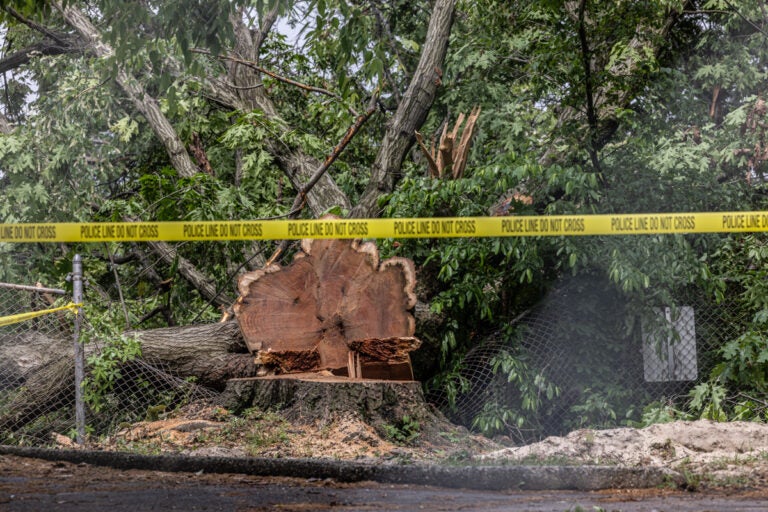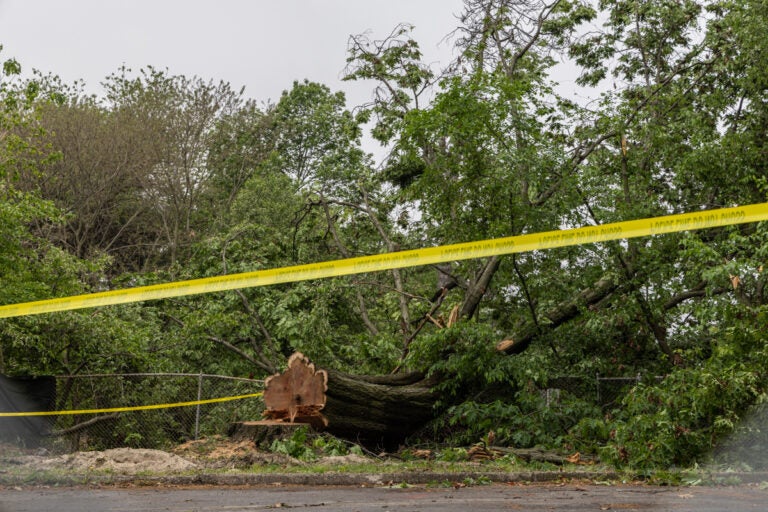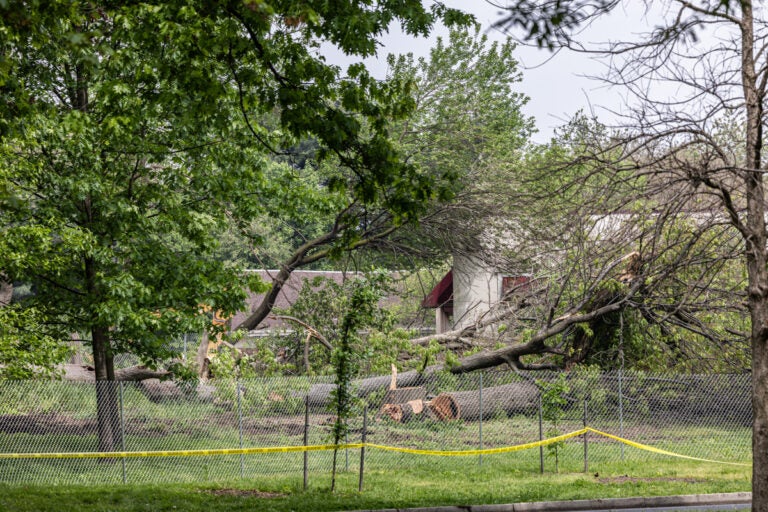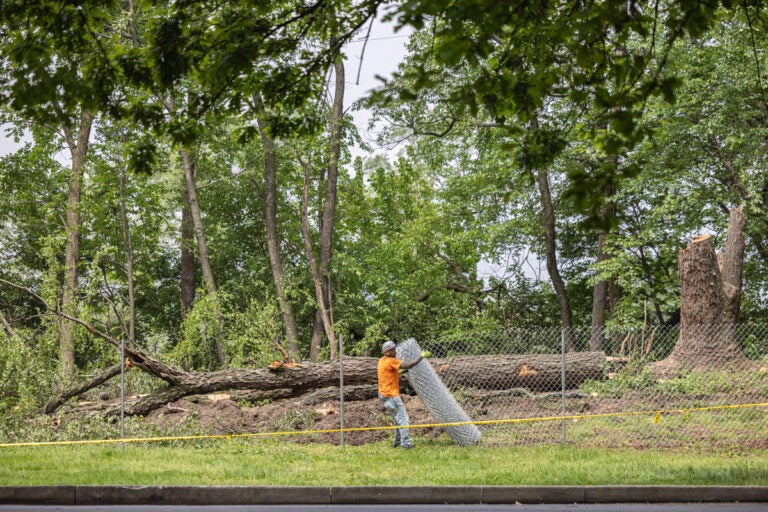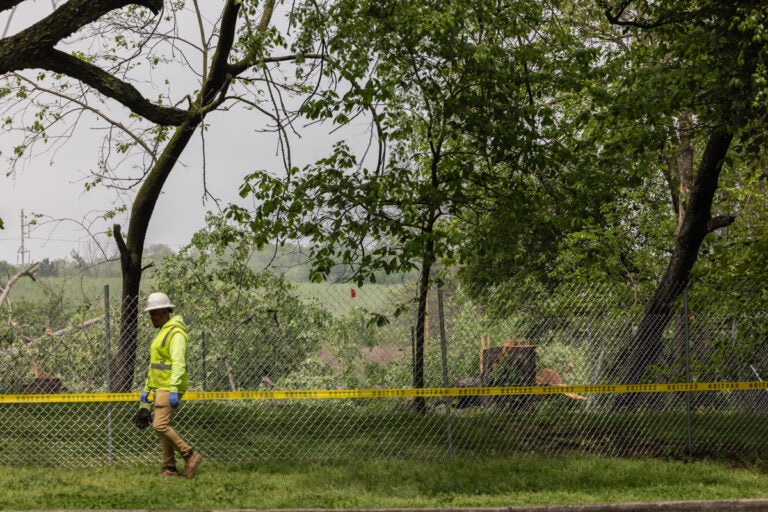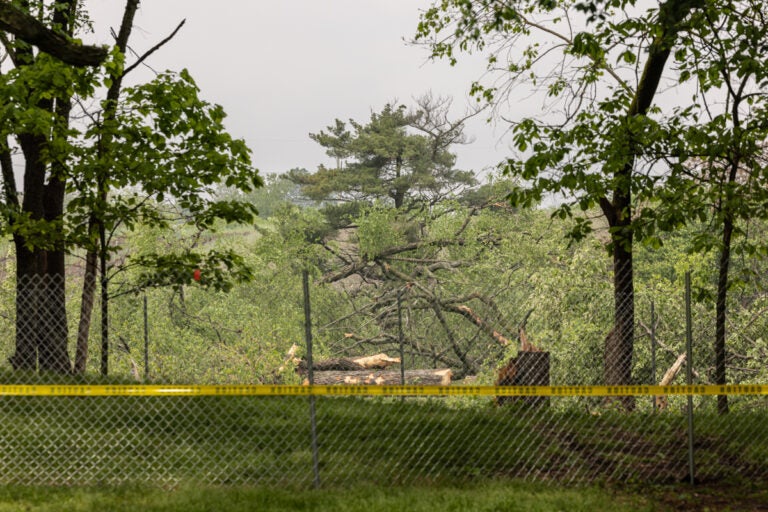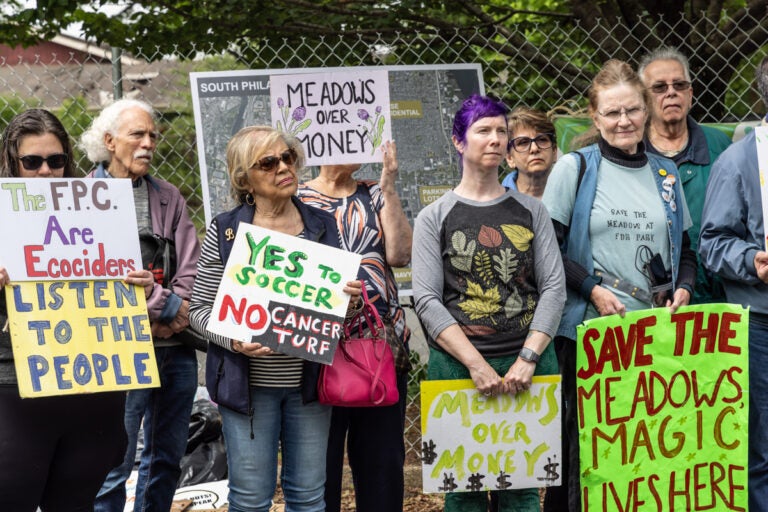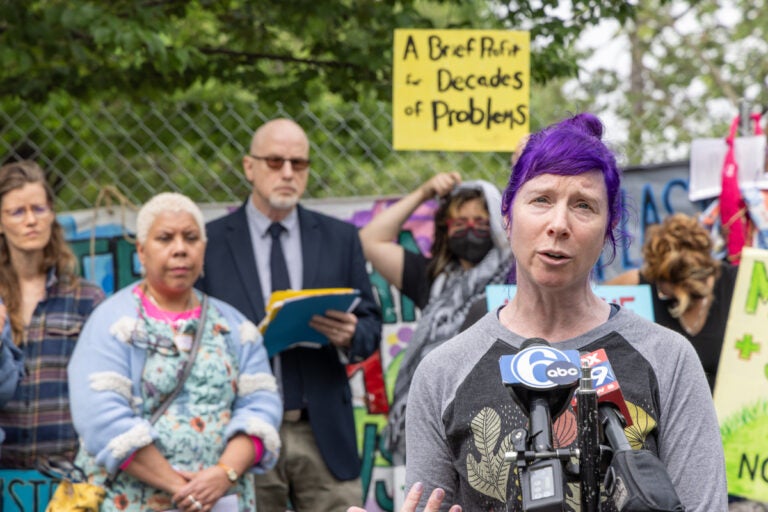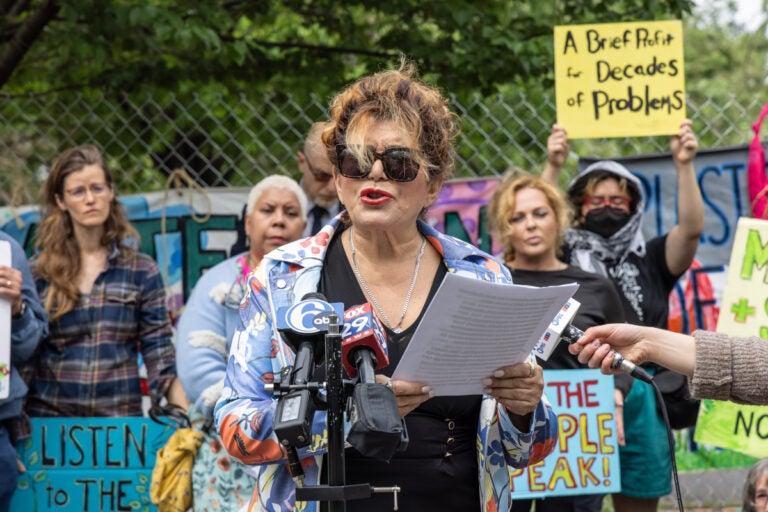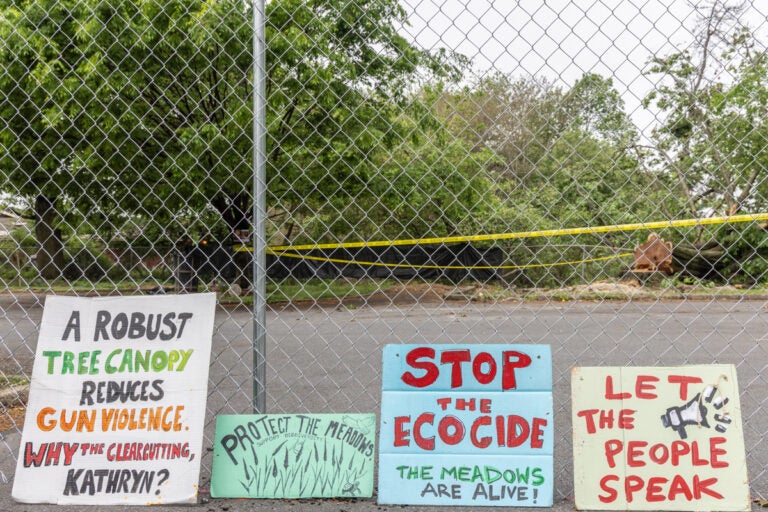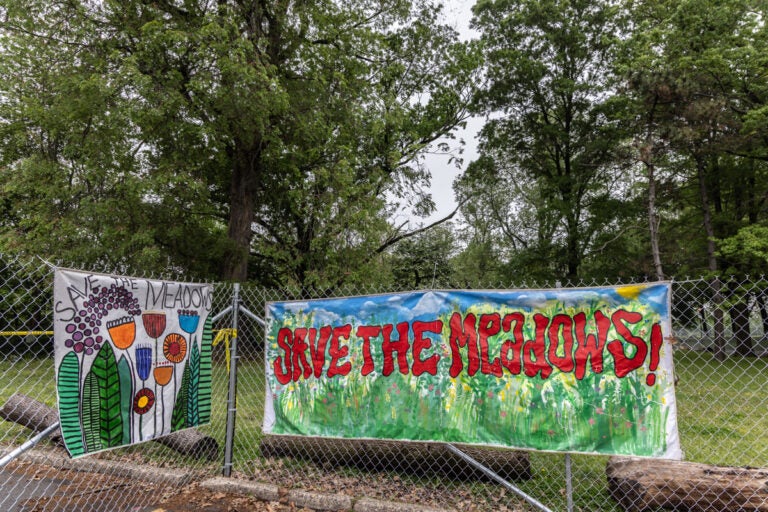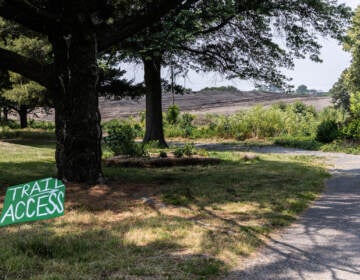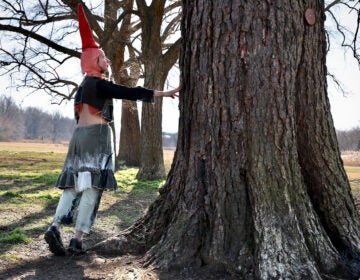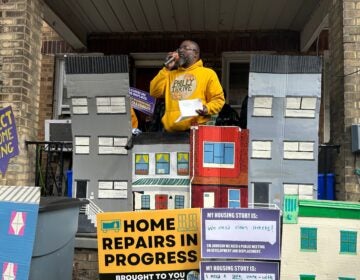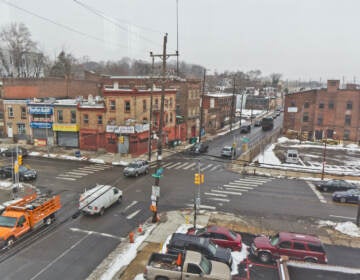More large trees cut down at South Philly’s FDR Park
Forty-eight “heritage” trees have been cut down in the park’s former golf course to make way for athletic fields and courts.
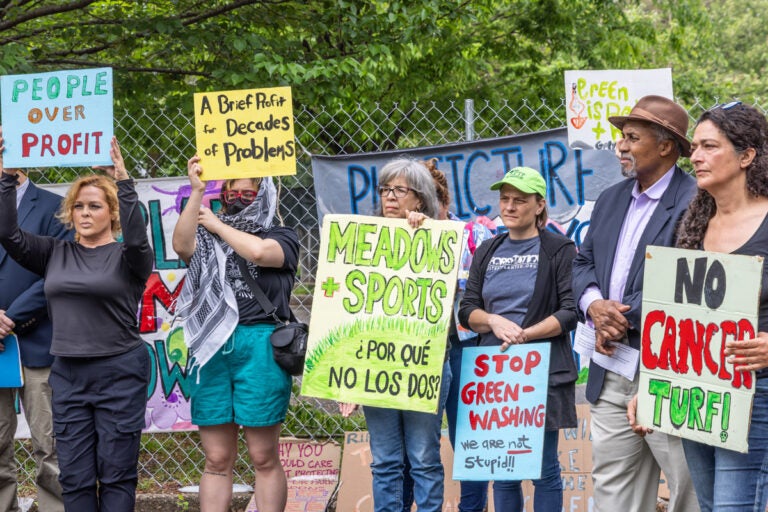
Environmental activists in Philadelphia called on Mayor Cherelle Parker to pause and review plans for FDR Park renovations at a press conference at the park after tree cutting had begun on May 6, 2024. (Kimberly Paynter/WHYY)
Have a question about Philly’s neighborhoods or the systems that shape them? PlanPhilly reporters want to hear from you! Ask us a question or send us a story idea you think we should cover.
In recent days, 48 large trees have been cut down in an area of FDR Park known to some park users as the Meadows.
The former golf course area of the popular South Philly park is being cleared to make way for more than two dozen athletic fields and courts. As of Monday, the stumps of numerous large trees were visible behind temporary chain-link fencing and yellow caution tape.
“Why is it so important that we must destroy in hours what [it took] nature almost a hundred years to create?” said Maurice Sampson, eastern Pennsylvania director of the nonprofit Clean Water Action and member of Mayor Cherelle Parker’s transition team. “This is a sad moment.”
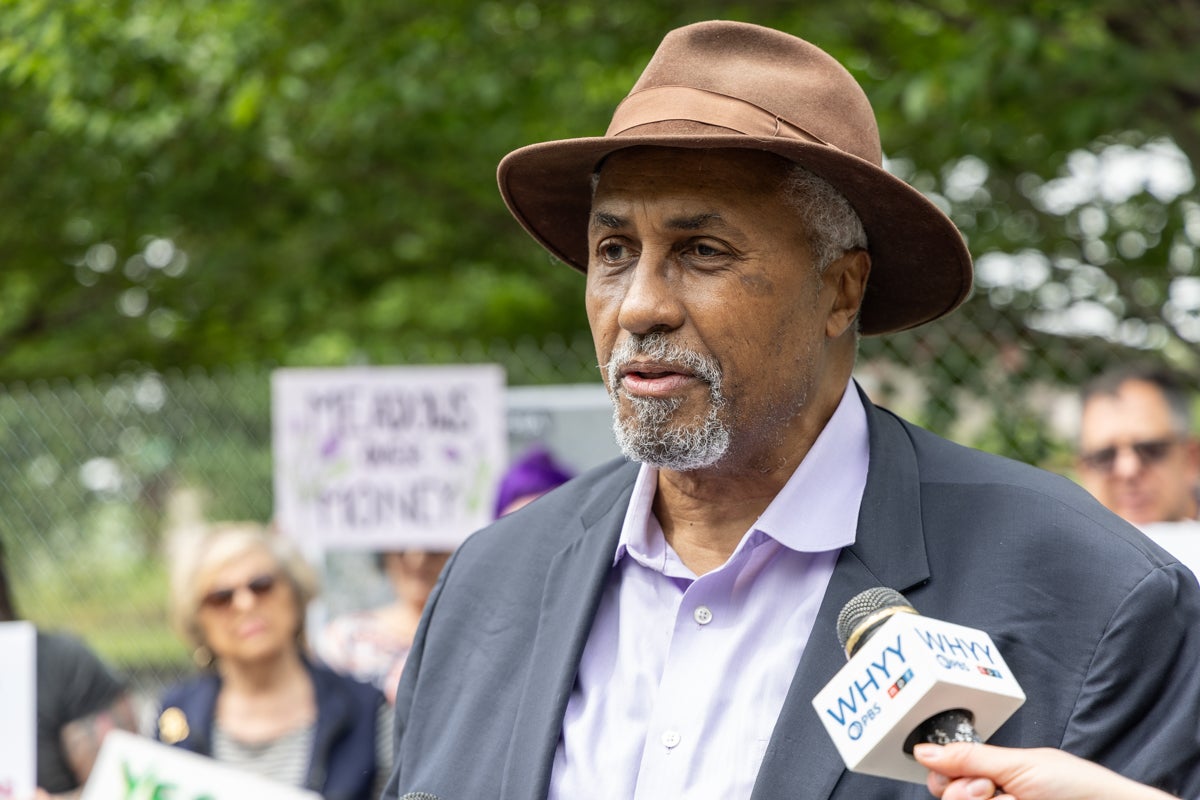
The Fairmount Park Conservancy’s planned clearing of around 400 trees, including dozens of so-called heritage trees, is the latest flashpoint in the $250 million renovation of the park.
Activists with the group Save the Meadows rallied in the park Monday, chanting “save our park” in front of the new fencing and felled trees.
Officials with the Fairmount Park Conservancy confirmed that 48 heritage trees — trees that are at least two feet wide and belong to a species on a city list of non-invasive trees — were cut down since late last week when a Philadelphia Court of Common Pleas judge decided her court did not have jurisdiction to hear a lawsuit by residents that sought to stop the project. The residents say they have filed an appeal and requested the court issue a stay pausing further tree clearing.
The conservancy also plans to cut down around 375 smaller trees for this stage of the renovation, but has not yet begun clearing these, a spokesperson said.
Earlier this spring, a city zoning board gave the conservancy, which is raising money and implementing the park renovation for the city, permission to cut down the 48 healthy heritage trees. Over a dozen other heritage trees were deemed “dead, damaged, or diseased,” and will also be cut down.
The park’s northwest corner, where trees were cleared, is slated for nine multipurpose artificial turf athletic fields, baseball diamonds, tennis courts, basketball courts, a playground, a fieldhouse and parking lots. Other naturalized areas on the park’s western side will become tidal wetlands, forested wetlands, nature trails, a wildflower hill and more turf fields.
Dozens of acres of vegetation were already cleared for the wetland’s construction in 2022, which officials say will eventually include 7,000 new native trees.
The Fairmount Park Conservancy plans to plant over 1,000 saplings in the northwest corner of the park beginning in 2026, to replace the trees it is clearing there.
Other parts of the park renovation include a new welcome center, new playgrounds and a permanent home for the Southeast Asian Market.
Proponents of the renovation, including youth sports coaches and advocates, say it will be key to enhancing athletic opportunities for young people in Philly, where many neighborhood sports fields are in disrepair. The city also says the planned regrading and wetland creation is needed to solve chronic flooding in the park and help it adapt to the effects of climate change.
Earlier this year, Mayor Cherelle Parker expressed her support for the renovation, which began during the previous mayoral administration.
“Everything that I’ve seen in the plans being proposed has been thought through very carefully about diversity, equity and inclusion, and how we make the park better so it’s more welcoming for everybody, for people, no matter their race, class, socioeconomic status or ZIP code,” she said at a rally at the park in February. “We want to make sure that everyone feels welcome here.”
But opponents accuse the city and Fairmount Park Conservancy of greenwashing.
Cutting down mature trees goes against the intent of the Philly Tree Plan, a strategy to slow tree loss and grow the city’s tree canopy to 30% tree cover within 30 years, said Jacelyn Blank, owner of a tree care company and co-founder of the Kensington-based Tree Tenders group Philly Tree People. Blank helped shape the Philly Tree Plan as part of its Community Voices Steering Committee.
“If they really did truly care… they would not be allowing the removal of the trees that they’re allowing right now,” Blank said.
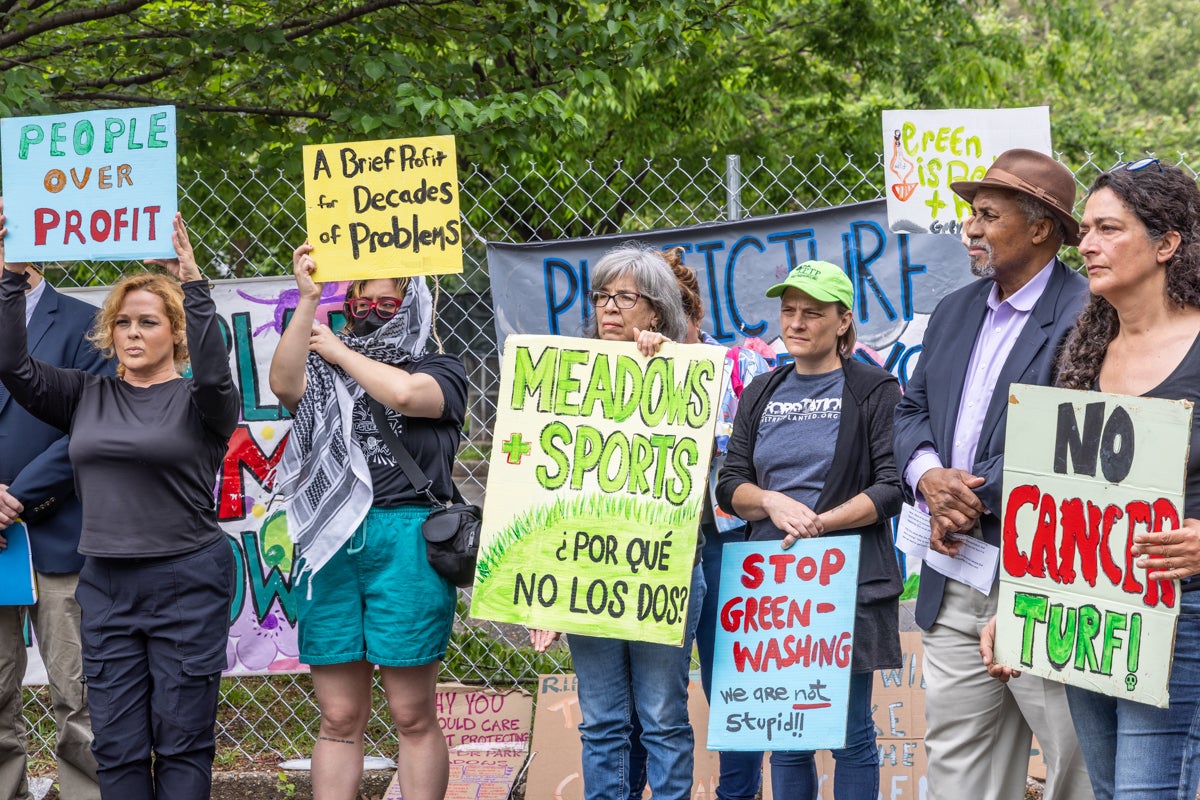
Others argue it will be decades before the new saplings serve the same ecological function as the old trees.
“When you kill a tree, you remove an air filter,” said forager and herbalist Lady Danni Morinich, another petitioner in the lawsuit against the project. “When you kill a tree, you remove roots that slow water… When you kill a tree, you remove shade and carbon sequestration.”
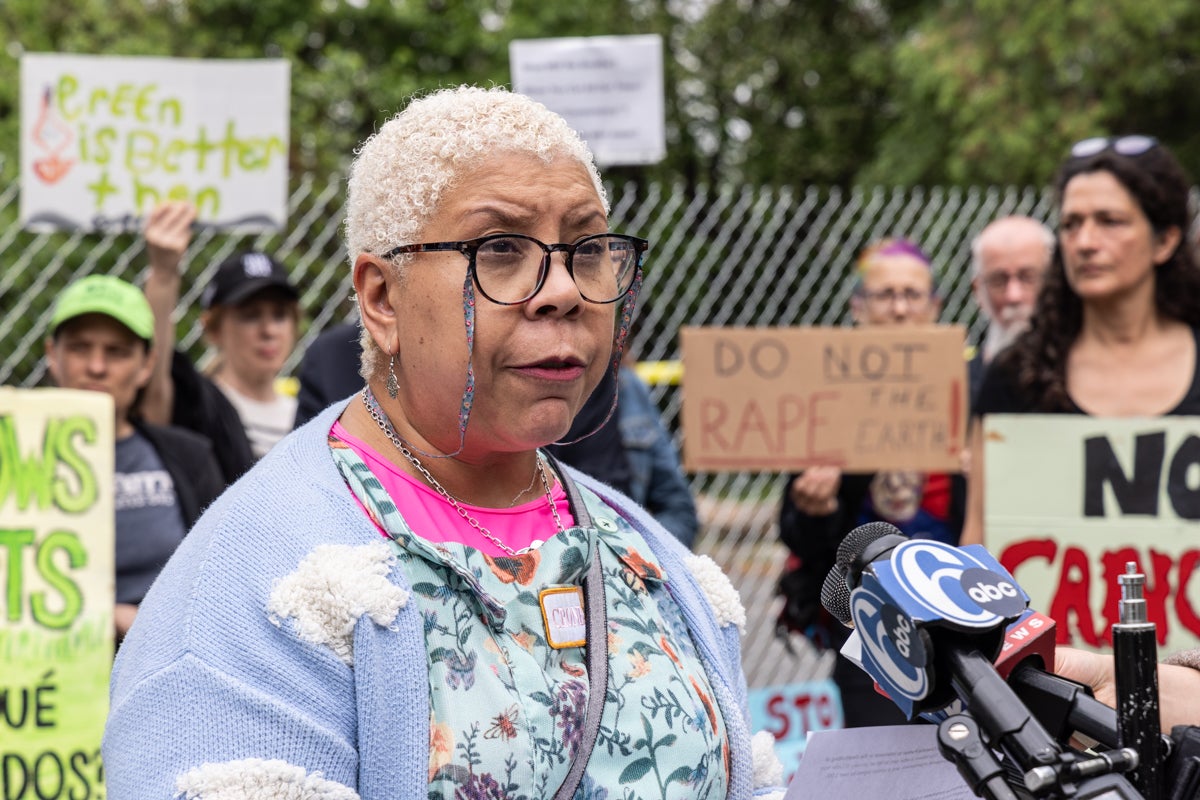
Sarah Peterson, a spokesperson for the Fairmount Park Conservancy, acknowledged the new saplings planned for the area being cleared would not immediately replace the ecological functions of the old trees. But she countered that the reconstructed wetlands in the park will sequester more carbon per acre than the trees in the former golf course, will also mitigate the urban heat island effect and provide a “significantly more biologically diverse” habitat for wildlife.
Peterson said the conservancy works toward the goals of the Philly Tree Plan by planting thousands of trees each year.
“The removal of heritage trees is not something that the Conservancy takes lightly, and it is not something we would do without a compelling mission-centric reason,” she said. “The ecological complexities of FDR Park make it necessary to do just that.”

Get daily updates from WHYY News!
WHYY is your source for fact-based, in-depth journalism and information. As a nonprofit organization, we rely on financial support from readers like you. Please give today.



